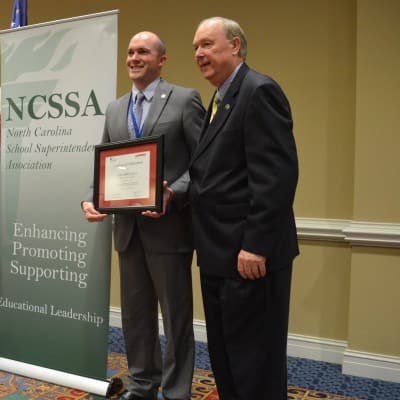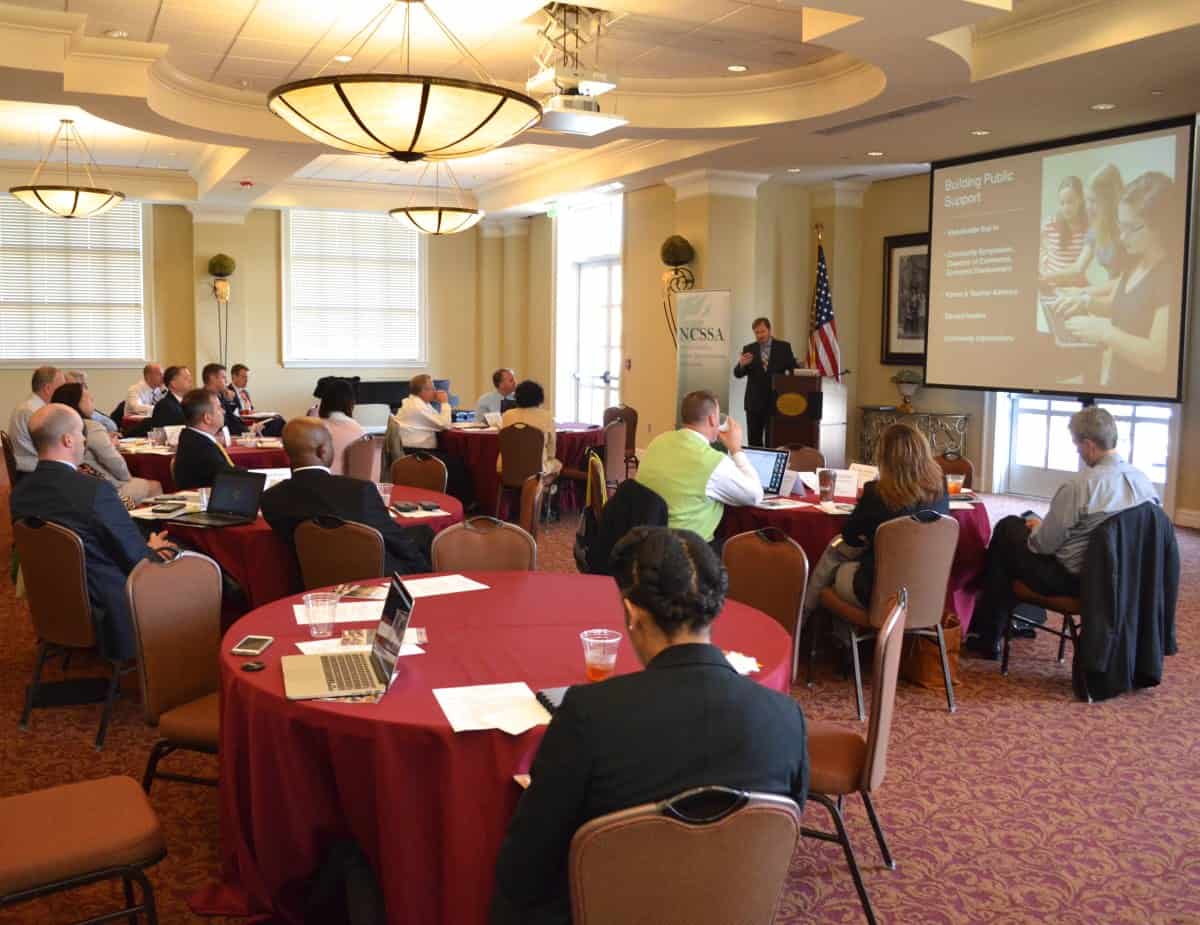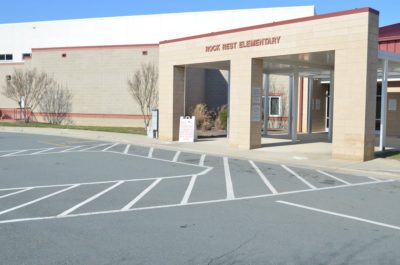In the world of North Carolina education, the words “professional development” get thrown around a lot. There are professional development opportunities for teachers and for principals. But when it comes to district superintendents, where do they go to learn?
Some attend national conferences, sure, but in North Carolina, there is basically only one option for newly minted district executives: The North Carolina School Superintendents Association (NCSSA) and its Next Generation Superintendent Development Program.
Led by Jack Hoke, a former superintendent of 12 years in Alexander County, NCSSA has provided professional development to new superintendents for the past three years.
Last week at High Point University, the Next Generation Superintendent Development Program graduated 18 superintendents from its latest class, known as Cohort III.
One of them was Anitra Wells, superintendent of Weldon City Schools. She said NCSSA’s professional development is essential.
“It’s different than reading a book and thinking about it theoretically,” she said. “You get to bounce ideas off of people and you hear about how people tackle the exact same issues.”
And giving superintendents that practical insight and networking possibility is the point, according to Hoke.
“When you’re in the district, there’s not a lot of folks you can talk to that understand your role,” he said.
Hoke himself took part in superintendent professional development back in 2006 through a Superintendents Executive Program that shut down in 2009. The experience was so valuable to him he decided someone needed to be offering something similar to today’s superintendents.
“I learned so much, not necessarily from the program but the folks in the program,” he said. “I was probably an average superintendent up to that point, and then I think I became a much better superintendent.”
So, three years, ago, Hoke launched The Next Generation Superintendent Development Program.


The program is eight face-to-face days scattered throughout the year and is offered to superintendents in their first five years. They get together, along with thought partners — superintendents who have already been through the program — to network, exchange ideas about issues, and get instruction on issues they may need training in.
For instance, last week, the superintendents in Cohort III heard a variety of presentations on things like: digital conversion in school districts, superintendent/school board relations, and the recently-passed Every Student Succeeds Act. Below this article, you will see videos of the digital conversion and school board relations presentations.
Janet Mason, Rutherford County’s superintendent, was part of the first class three years ago. She returns now as a “thought partner,” someone the new superintendents can bounce ideas off of and even call throughout the year. She said a lot is expected of superintendents, but they don’t automatically have all of the skills they need. Professional development helps fill in the gaps.
“People ask us a question in the district, and they think you’re immediately supposed to know,” she said.
Rob Jackson, superintendent of Edenton-Chowan Schools, said superintendents need to be able to connect with their peers.
“As a new superintendent it was important for me to be able to call on someone who was dealing with the same issues,” he said.
Another reason Hoke thought it was important to provide a professional development opportunity for superintendents was to deal with the high turnover rate facing the state.
He said the rate fluctuates between 22 to 25 percent each year. That’s superintendents who may retire, leave the state, or just change districts. But since he retired in April 2012, he said there’s been 75 percent turnover.
Hoke hopes that by giving the superintendents what they need, they will stay in one place for longer.
“What we’re trying to do is help guide superintendents as they reflect on and improve their effectiveness as district leaders,” he said.
Superintendent/Board Relations Presentation
Digital Conversion Presentation



